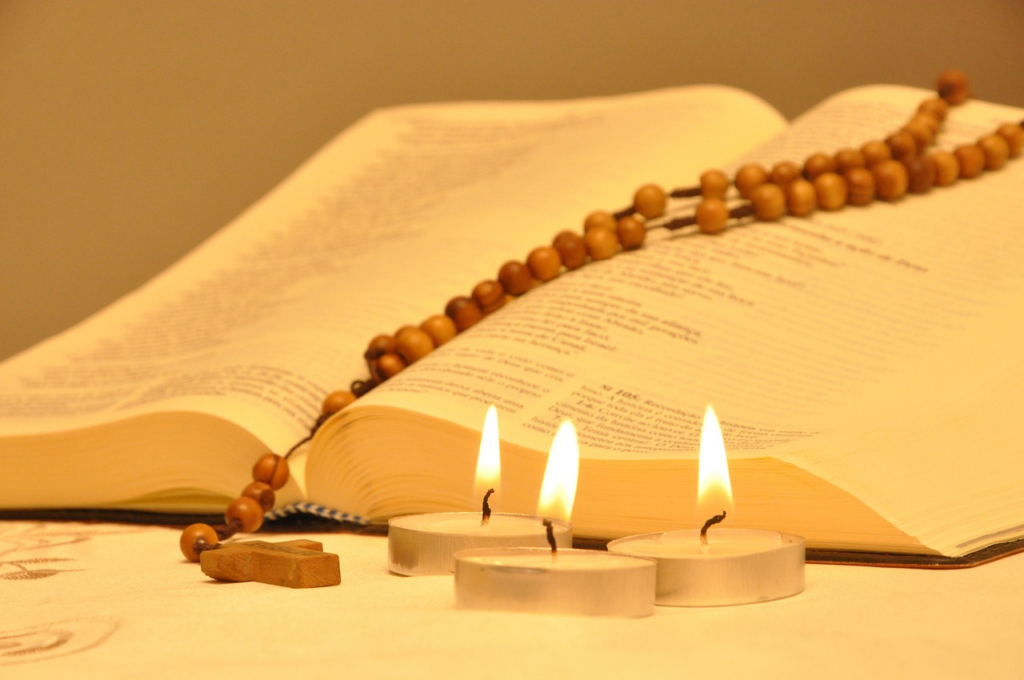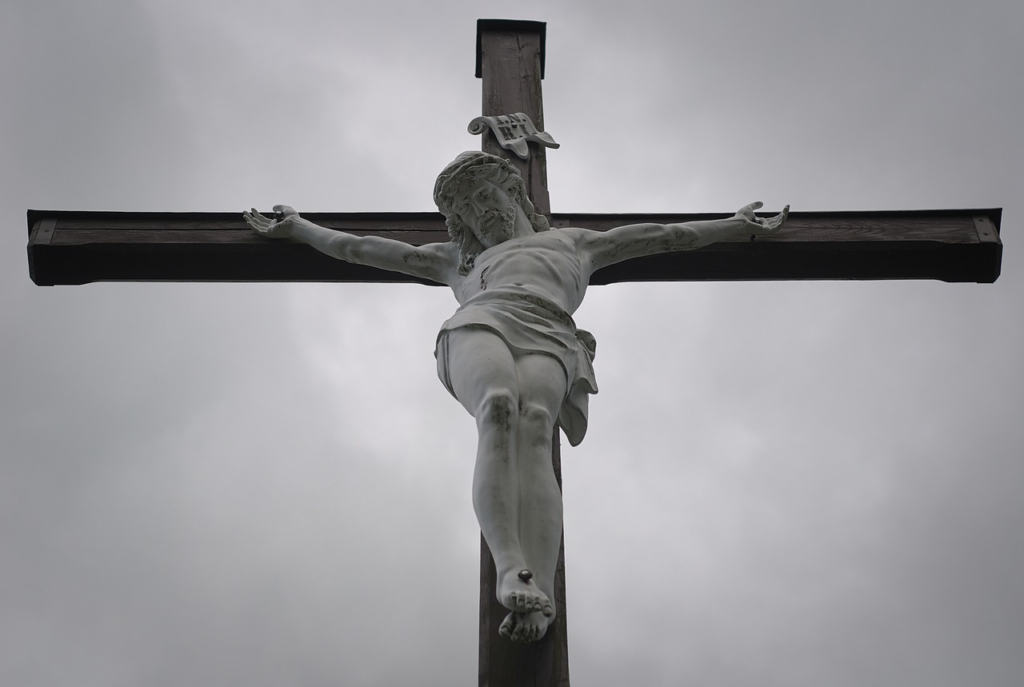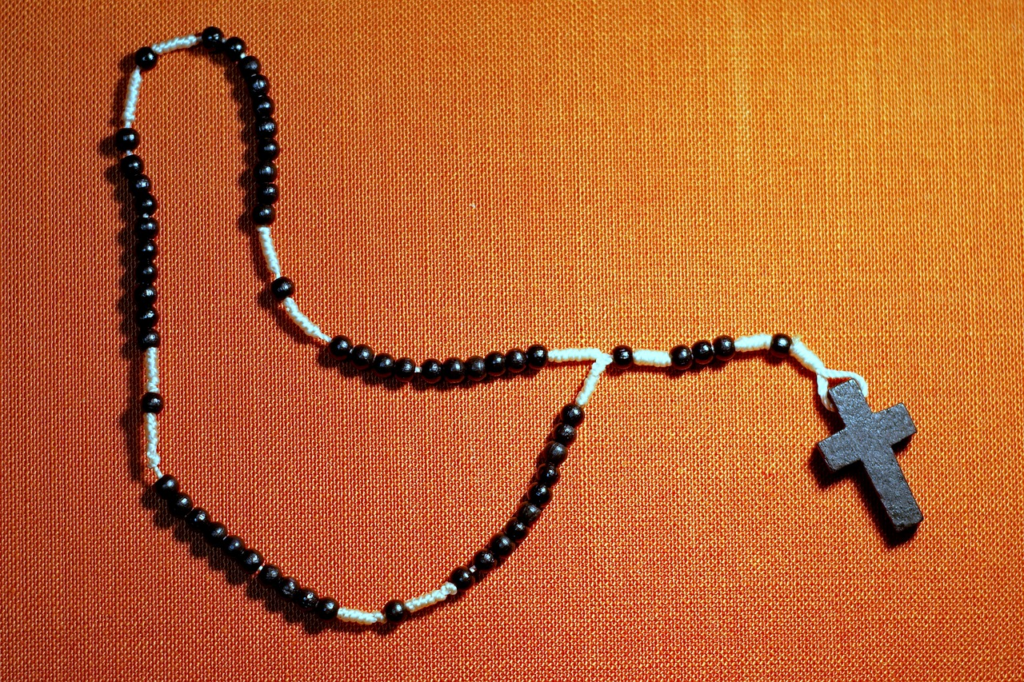Advertisement
In the vast panorama of the world's religions, Christianity and Catholicism are two of the most prominent and influential belief systems. Although they are often used interchangeably, there are crucial distinctions between them that are worth exploring.
What is the difference between Christianity and Catholicism?
In the vast landscape of world religions, Christianity and Catholicism emerge as two of the most influential and widely practiced. However, despite sharing common roots in the figure of Jesus Christ, these two religious traditions are not identical.
Advertisement
What differentiates Christianity from Catholicism? To answer this question, it is essential to examine not only their distinct doctrines and beliefs, but also their historical origins and liturgical practices.
Historical Origins
The historical origins of Christianity and Catholicism go back to the crucial events of the first century AD in Palestine, a Roman province at the time. Christianity has its roots in the ministry and teachings of Jesus Christ, a Jew who preached a message of love, forgiveness and redemption. During his life, Jesus attracted a group of followers, known as disciples or apostles, who witnessed his miracles and teachings.
Advertisement
After his crucifixion under Roman rule, followed by his resurrection as stated in the Gospel accounts, the disciples became the first propagators of the Christian message. They traveled to various parts of the Roman world, spreading Jesus' teachings and establishing communities of believers. This early period of Christianity was marked by rapid expansion, despite occasional persecution by the Roman authorities.

Catholicism, in turn, emerged as one of the first Christian denominations to develop. The word "catholic", derived from the Greek "katholikos", means "universal", reflecting the early church's vision of being the universal church of Christ. Catholic tradition affirms that Jesus Christ designated the apostle Peter as the leader of his church and the first pope. The apostolic succession of the bishops of Rome is considered a distinctive mark of the legitimacy and continuity of the Roman Catholic Church.
Over the centuries, Christianity and Catholicism have undergone a series of historical developments and theological divisions. Early Christianity flourished in various communities and regions, giving rise to different traditions and interpretations of Jesus' teachings. Meanwhile, Catholicism consolidated itself as a unified institution under papal authority, exerting significant political and cultural influence in Western Europe and beyond.
These historical origins laid the foundations for the doctrinal and practical distinctions between Christianity and Catholicism that still persist today. Understanding these origins is fundamental to contextualizing the differences between these two religious traditions and appreciating the complexity and diversity of Christianity in its entirety.
Doctrines and Beliefs
The doctrinal differences between Christianity and Catholicism are significant and can be seen in various aspects of their theology and religious practice.
Religious Authority
In Christianity, especially in Protestant denominations, the highest authority is generally attributed to the Holy Scriptures, i.e. the Bible. Protestants tend to emphasize the individual interpretation of Scripture and freedom of conscience.
On the other hand, Catholicism recognizes both the Bible and the sacred tradition and magisterium of the Church as sources of authority. This means that in addition to the Scriptures, Catholics consider the teachings transmitted orally by the apostles and the authoritative interpretation made by the ecclesiastical hierarchy to be fundamental to the faith.
Sacraments
Catholicism recognizes seven sacraments: baptism, confirmation, eucharist (communion), reconciliation (confession), anointing of the sick, holy orders (priesthood) and marriage. The sacraments are seen as channels of divine grace, through which the faithful receive God's favor and blessing.
However, many Christian denominations, especially Protestant ones, recognize fewer sacraments. For example, some recognize only two sacraments: baptism and communion. Furthermore, the understanding of the sacraments can vary considerably between different Christian traditions.
Mariology and Saints
Catholicism attaches special importance to Mary, the mother of Jesus, and to the intercession of the saints. Mary is seen as a mediator and intercessor between the faithful and her son, Jesus Christ. Catholics often turn to her in prayer and give her titles such as "Mother of God" and "Queen of Heaven".
In contrast, many Protestant Christian denominations do not share this practice of venerating Mary or the intercession of the saints. They tend to emphasize a direct and personal relationship with God, without the need for mediation by other religious figures.
These differences in doctrines and beliefs between Christianity and Catholicism reflect their distinct approaches to authority, sacraments and the role of religious figures such as Mary and the saints. These distinctions have significant implications for the spiritual life and religious practice of adherents of each tradition.
Liturgical Practices
Liturgical practices, i.e. the rituals and ceremonies performed during religious services, also differ between Christianity and Catholicism. These differences not only reflect the different theological approaches, but also influence the spiritual experience of the faithful in each tradition.
Masses and services
In Catholicism, the center of liturgical practice is the Mass, also known as the Eucharistic Liturgy. The Catholic Mass is an elaborate ceremony that follows a specific order of rituals, including Scripture readings, prayers, songs, sermons and the consecration of bread and wine, which Catholics believe become the body and blood of Christ during the sacrament of the Eucharist.
On the other hand, in Protestant Christian denominations, services can vary significantly in style and format. Some services can be more informal, with an emphasis on preaching the word of God and worship through contemporary songs, while others can follow a more structured liturgy, with elements such as prayers, Bible readings and traditional songs.
Saints and Devotions
In Catholicism, the practice of venerating saints is common, as well as making specific devotions to religious figures. Catholics often turn to the saints as intercessors, asking for their help and protection in times of need. In addition, Marian devotions, in honor of Mary, the mother of Jesus, occupy a central place in Catholic spirituality, with prayers such as the Rosary being frequently recited.
In contrast, many Protestant Christian denominations tend to focus more on the direct and personal relationship with God, without the same emphasis on the mediation of the saints or Mary. Devotional practices can be simpler and centered on worshipping God without intermediaries.
Symbols and Ceremonies
Both traditions, Christianity and Catholicism, use a variety of symbols and ceremonies in their religious services. However, the way these symbols are interpreted and the ceremonies are performed can vary. For example, the cross is a central symbol for both Catholics and Protestant Christians, but the specific interpretations can differ in terms of their importance and meaning.
In addition, the use of liturgical vestments by clerics, such as vestments and ceremonial vestments, may be more prominent in Catholicism, reflecting the importance of tradition and ritual in the expression of the Catholic faith.
What does the Catholic religion believe in?
The Catholic religion believes in a series of fundamental doctrines and principles that form the basis of its faith. Here are some of the main aspects in which the Catholic religion believes:
- Belief in God: Catholics believe in one all-powerful God, who is the Creator of the universe and who has revealed himself to human beings through the Bible and sacred tradition.
- Trinity: The doctrine of the Trinity is central to the Catholic faith, teaching that God exists as three distinct persons, but in a single divine essence: Father, Son (Jesus Christ) and Holy Spirit.
- Jesus Christ: Catholics believe that Jesus Christ is the incarnate Son of God, who came to earth to save humanity from sin and death. They recognize Jesus as the Savior and Messiah promised in the Scriptures.
- Salvation: Catholics believe in the necessity of salvation by God's grace, obtained through faith in Jesus Christ. They believe that Jesus died on the cross to redeem the sins of mankind and offer eternal salvation to those who accept and follow him.
- Sacraments: The Catholic religion recognizes seven sacraments as effective means of receiving divine grace and strengthening one's spiritual life. These sacraments are: baptism, confirmation, eucharist (communion), reconciliation (confession), anointing of the sick, holy orders (priesthood) and marriage.
- Church: Catholics believe in the Church as the Body of Christ on earth and consider the Roman Catholic Church to be the visible institution established by Christ to guide the faithful, administer the sacraments and teach Christian doctrine.
- Life after death: The Catholic faith includes a belief in the resurrection of the dead and in life after death. Catholics believe in a final judgment, in which all people will be accountable to God for their actions and will either be rewarded with eternal life or condemned to separation from God.
These are just some of the main aspects that the Catholic religion believes in. The Catholic faith is rich in doctrines, traditions and spiritual practices that shape the lives of its followers and influence their understanding of the world and human existence.

What does it mean to be a Roman Catholic?
Being a Roman Catholic means following the faith and practices of the Roman Catholic Church, which is one of the largest and oldest Christian denominations in the world. Here are some of the aspects that define what it means to be a Roman Catholic:
- Acceptance of Papal Authority: Roman Apostolic Catholics recognize the Pope as the spiritual leader of the Catholic Church and the successor of the Apostle Peter, to whom Jesus Christ entrusted the leadership of the Church. They accept the Pope's authority to teach, govern and sanctify the Church.
- Faith in Sacred Tradition and Scripture: Roman Catholics believe that divine revelation is found both in the Bible and in sacred tradition, which includes the teachings handed down orally by the apostles and the authoritative interpretation made by the Church's hierarchy.
- Participation in the Sacraments: Apostolic Roman Catholics recognize the importance of the sacraments as channels of divine grace. They regularly participate in the sacraments of the Eucharist (communion), confession, baptism, confirmation, marriage, anointing of the sick and holy orders (priesthood).
- Liturgical Worship: Roman Catholics actively participate in liturgical worship, especially the Mass, which is the center of Catholic spiritual life. They participate in regular church services, in which rituals, Scripture readings, prayers and the celebration of the Eucharist take place.
- Devotion to Saints and Mary: Roman Catholics have a deep devotion to saints, believing that they intercede for them before God. They also have a special veneration for Mary, the mother of Jesus, whom they regard as a mediator and intercessor.
- Universal Catholic Identity: Being a Roman Catholic implies being part of a global community of believers who share a common religious identity and faith. Catholics are encouraged to participate in the life of the Church, to practice the works of mercy and to live according to the teachings of Jesus Christ.
Being a Roman Catholic means belonging to the community of the Catholic Church, accepting its doctrinal authority and participating fully in its spiritual and sacramental life.
Faith in Jesus
In summary, although Christianity and Catholicism share a central faith in Jesus Christ as the Son of God and the Savior of humanity, their doctrinal differences, liturgical practices and history are notable.
While Christianity encompasses a variety of traditions and denominations, Catholicism represents one of the main currents within Christianity, characterized by its hierarchical structure, sacramental tradition and emphasis on the authority of the Church. However, it is important to recognize that both Christianity and Catholicism seek to follow the teachings of Jesus Christ and share a common goal of promoting Christian faith and morals in the world.
See also: The Importance of Spirituality in the Digital Age: How Technology Affects Our Religious Practice
March 30th, 2024

She has a degree in Languages - Portuguese/English, and is the creator of the Escritora de Sucesso website. As a writer, she seeks to expand everyone's knowledge with relevant information on various subjects. At SoMuchToSayToday, she brings news and content ranging from entertainment to the country's economic situation.



